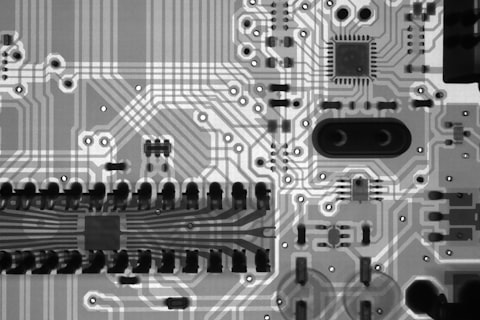Unraveling the Wonders of Artificial Intelligence: A Comprehensive Insight
Artificial Intelligence (AI) stands as a transformative force,
revolutionizing diverse industries and reshaping the technological
landscape. This article embarks on an illuminating exploration of how
artificial intelligence works, delving into its fundamental principles,
key components, learning paradigms, and real-world applications. By
unraveling the intricacies of AI, we gain a deeper understanding of its
profound impact on modern society and its potential for shaping the
future.
Understanding the Foundations of Artificial Intelligence
At its core, artificial intelligence seeks to imbue machines with the
ability to perceive, reason, learn, and make decisions, emulating human
cognitive functions. This is achieved through the amalgamation of
advanced algorithms, computational power, and vast datasets, enabling
machines to exhibit intelligent behavior and adapt to dynamic
environments.
-
Cognitive Functions: AI aims to replicate human-like capabilities, including perception, reasoning, problem-solving, and decision-making.
-
Algorithmic Frameworks: Machine learning, neural
networks, and deep learning form the bedrock of AI algorithms, enabling
pattern recognition and predictive modeling.
-
Data-driven Insights: AI leverages extensive datasets to derive insights, identify patterns, and make informed decisions.
Key Components of Artificial Intelligence
Artificial intelligence encompasses a spectrum of components, each
contributing to the overall functionality and intelligence of AI
systems. From data processing and feature extraction to decision-making
and feedback loops, these components collectively enable AI to perform
complex tasks and adapt to evolving scenarios.
-
Data Processing: Ingestion, preprocessing, and transformation of raw data into actionable insights.
-
Feature Extraction: Identification of relevant patterns and features within datasets for learning and decision-making.
-
Decision Systems: Algorithms and models that facilitate decision-making based on learned patterns and input data.
-
Feedback Mechanisms: Iterative learning and adaptation based on feedback loops and environmental cues.
Learning Paradigms: Machine Learning and Deep Learning
Machine learning and deep learning serve as the cornerstones of AI,
empowering systems to learn from data, identify patterns, and make
predictions or decisions without explicit programming. These learning
paradigms underpin a myriad of AI applications, ranging from image
recognition and natural language processing to autonomous vehicles and
predictive analytics.
- Machine Learning: Algorithms learn from data to
make predictions or decisions, with supervised, unsupervised, and
reinforcement learning paradigms.
- Deep Learning: Neural networks with multiple layers
learn intricate representations of data, enabling complex pattern
recognition and feature extraction.
Real-world Applications of Artificial Intelligence
The pervasive influence of artificial intelligence is evident across
diverse domains, including healthcare, finance, transportation,
manufacturing, and entertainment. AI-driven innovations have led to
breakthroughs in medical diagnostics, personalized recommendations,
autonomous vehicles, predictive maintenance, and natural language
understanding, among many others.
-
Healthcare: AI aids in disease diagnosis, drug discovery, and personalized treatment plans.
-
Finance: Predictive analytics and fraud detection enhance risk management and security.
-
Transportation: Autonomous vehicles and route optimization revolutionize mobility and logistics.
-
Manufacturing: Predictive maintenance and quality control optimize production processes and minimize downtime.
-
Entertainment: Personalized recommendations and content generation enrich user experiences in media and entertainment.
Ethical Considerations and Societal Impact
As artificial intelligence continues to advance, ethical
considerations surrounding privacy, bias, transparency, and
accountability become increasingly pertinent. The societal impact of AI
extends to employment dynamics, economic shifts, and the ethical use of
AI in decision-making processes, necessitating thoughtful governance and
responsible deployment of AI technologies.
-
Privacy and Security: Safeguarding personal data and ensuring secure AI systems.
-
Bias and Fairness: Mitigating algorithmic biases and ensuring equitable AI applications.
-
Transparency and Accountability: Establishing transparent AI decision-making and accountability frameworks.
-
Employment and Economic Dynamics: Addressing the impact of AI on labor markets and economic structures.
Conclusion: Embracing the Potential of Artificial Intelligence
In conclusion, artificial intelligence represents a profound leap in
technological innovation, offering boundless potential for addressing
complex challenges, driving innovation, and enhancing human
capabilities. By comprehending the inner workings of AI and its
far-reaching implications, we can harness its transformative power to
shape a future that is both technologically advanced and ethically
sound.
In conclusion, artificial intelligence represents a profound leap in
technological innovation, offering boundless potential for addressing
complex challenges, driving innovation, and enhancing human
capabilities. By comprehending the inner workings of AI and its
far-reaching implications, we can harness its transformative power to
shape a future that is both technologically advanced and ethically
sound.







تعليقات
إرسال تعليق